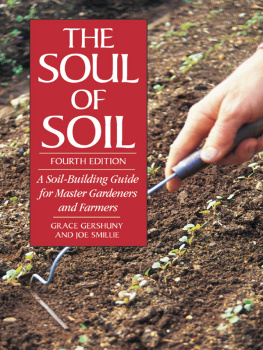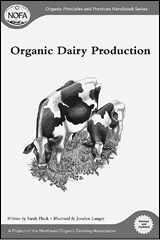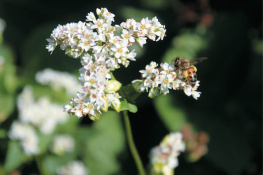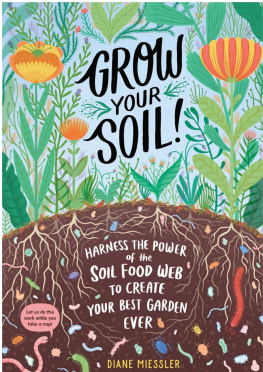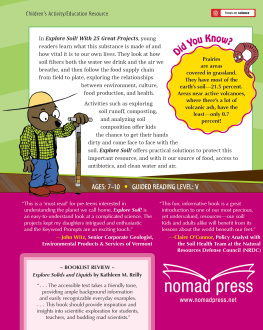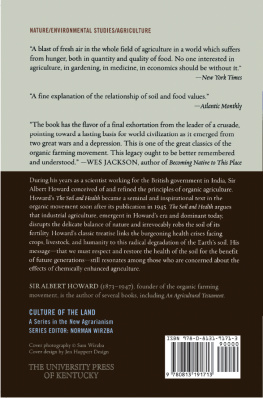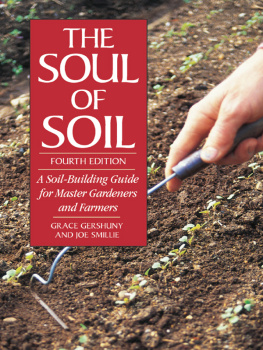
THE S OUL OF
S OIL
THE SOUL OF
SOIL
A Soil-Building Guide
for Master Gardeners
and Farmers
FOURTH EDITION
Grace Gershuny and Joe Smillie
CHELSEA GREEN PUBLISHING
White River Junction, Vermont
Copyright 1983, 1986, 1995, 1999 Grace Gershuny and Joe Smillie
No part of this book may be transmitted in any form by any means without permission in writing from the publisher.
Designed by Dede Cummings Designs
Printed in the United States
Fourth edition. First Chelsea Green printing, 1999
Library of Congress Cataloging-in-Publication Data
Gershuny, Grace.
The soul of soil : a soil-building guide for master gardeners and farmers / Grace Gershuny and Joe Smillie. 4th ed.
p. cm.
Includes bibliographical references.
eBook ISBN: 978-1-603581-24-0
1. Soil management. 2. Organic farming. 3. Agricultural ecology.
I. Smillie, Joseph. II. Title.
S591.G45 1999
631.4dc2
99-20865
CIP
Chelsea Green Publishing Company
Post Office Box 428
White River Junction, Vermont 05001
(800) 639-4099
www.chelseagreen.com
This work is dedicated
to life on earth
and all soil lovers.
CONTENTS
by Bill Wolf
LIST OF TABLES
FOREWORD TO THE
FOURTH EDITION
What a joy it is
to feel the soft, springy earth under my feet
once more,
to follow grassy roads that lead to ferny brooks where I can bathe my fingers in a cataract of rippling notes, or to clamber over a stone wall into green fields that tumble and roll and climb in riotous gladness!
HELEN KELLER, from The Story of My Life
Cultivating soil and encouraging plants to grow in harmony with natures wondrous systems has been an honored avocation throughout history. But modern Western society, with all its advances, sometimes brings a disconnection from our Earth. I believe we are in a period of reawakening, making a transition from a mechanical to a biological era. Our knowledge and our actions in all fields, from human health to forestry and agriculture, will be built on a combination of knowledge about biological systems and acceptance of our own role in nature.
Feeling this connectedness to our planet and the living systems around us will be one of the predominant experiences of the twenty first century. These experiences will not all be joyous. Some will be more painful than the DDT death of eagles or the phosphate and nitrate poisoning of our waterways. The changes we are making to natures balanced systems are leading to a cascade of environmental problems. To our credit, we are beginning to reverse the damage to the air-water-soil-plant-animal systems, as demonstrated by the cleanup of rivers in North America.
The first rule of ecology is that everything is connected to everything else, and so when any one component changes, everything else changes in response, even if only a tiny bit. Getting in touch with the soul of soil is a crucial first step toward honoring our oneness with all living creatures and helping the long process of repair that a new biological era will require.
Joe Smillie and Grace Gershuny are uniquely qualified to write this book, which I consider to be the most clear and concise introduction to the magic of how soil works. This is also an ideal guide to how one can respect soil and be gentle and aware when working with it. The authors combine university training with practical field experience and decades of successful results. Joe has probably visited and helped more organic farmers around the world than anyone else I know. Grace teaches organic agriculture, farms organically, and has committed her life to the soil. She too has spent many years inspecting and helping organic farms around the world.
At the root of successful farming and gardening is the principle that a healthy soil yields bountiful plants resistant to disease and insect pests. This knowledge is not new. It has been observed and proven by practical farmers and agricultural experts for centuries. Thomas Jefferson, in a 1793 letter to advising his daughter about pest problems, wrote:
When the Earth is rich, it bids defiance to droughts, yields in abundance, and of the best quality. I suspect that the insects which have harassed you have been encouraged by the feebleness of your plants, and that has been produced by the lean state of your soil.
More recently, Sir Albert Howard, one of the founding fathers of organic farming, linked quick-fix synthetic nitrogen fertilizers to increased pest problems:
Nature has provided a marvelous piece of machinery for conferring disease resistance on the crop. This machinery is only active in soil rich in humus; it is inactive or absent in infertile land and in similar soils manured with chemicals. The fuel needed to keep this machinery in motion is a regular supply of freshly prepared humus, properly made. Fertile soils then yield crops resistant to disease. Worn-out soils, even when stimulated with chemical fertilizers, result in produce which needs the assistance of insecticides and fungicides to yield a crop at all [from An Agricultural Testament].
One of the great myths of the twentieth century held that organic farmers have fewer tools at their disposal. They cant compete or succeed on a large scale. And yet ecological or organic soil care is actually built around what R. Buckminster Fuller called doing more with less. Thus we reduce inputs by encouraging air in the soil, letting earthworms be our plowmen and fertilizer factories, and growing legumes to collect nitrogen for free from the air thanks to that extraordinary symbiotic relationship between good bacteria and certain plant roots. These are among the wondrous insights you can glean from The Soul of Soil, and these are the tools that land stewards of every persuasion will need for us all to thrive in the twenty-first century. As Wendell Berry has written, in The Gift of Good Land:
An organic farm, properly speaking, is not one that uses certain methods and substances and avoids others; it is a farm whose structure is formed in imitation of the structure of a natural system that has the integrity, the independence, and the benign dependence of an organism.
The thin mantle of soul that covers our Earth is what feeds and nurtures us. We are innately and inextricably connected to soil for our survival. Yet today we are paving over this life-giving, breathing mantle and washing countless billions of tons of soil into our waterways, as though it were just dirt. What if we had to take into consideration what an earthworm would really like? It would certainly change how we do environmental impact studies!
For twenty years, my work in organic soil care and ecological earth management has joyously led me to cross paths with Grace and Joe. I remember reading the manuscript for the first edition and knowing that this primer outlines the essential dynamics of the living soil. Here is the working persons introduction to agronomy, because it provides the basic information you need to become a self-educated soil expert. In a reader-friendly way, The Soul of Soil also lays out the basic tenets of a sustainable agriculture.
With this knowledge you too can know the joy of helping your soils improve. Observing your soil, counting your earthworms, measuring drainage, feeling texture, smelling the forest earth smell, and knowing what these indicators mean will empower you to be a steward of the soil and the bounty it yields. Learning a few simple tests that you can do at home connects you directly to natures systems. In fact, its more important to learn those simple tests than to learn how to take a soil sample and send it off to a lab. Having provided the fundamentals, Joe and Grace go on to explain all about taking and interpreting laboratory soil tests.
Next page
